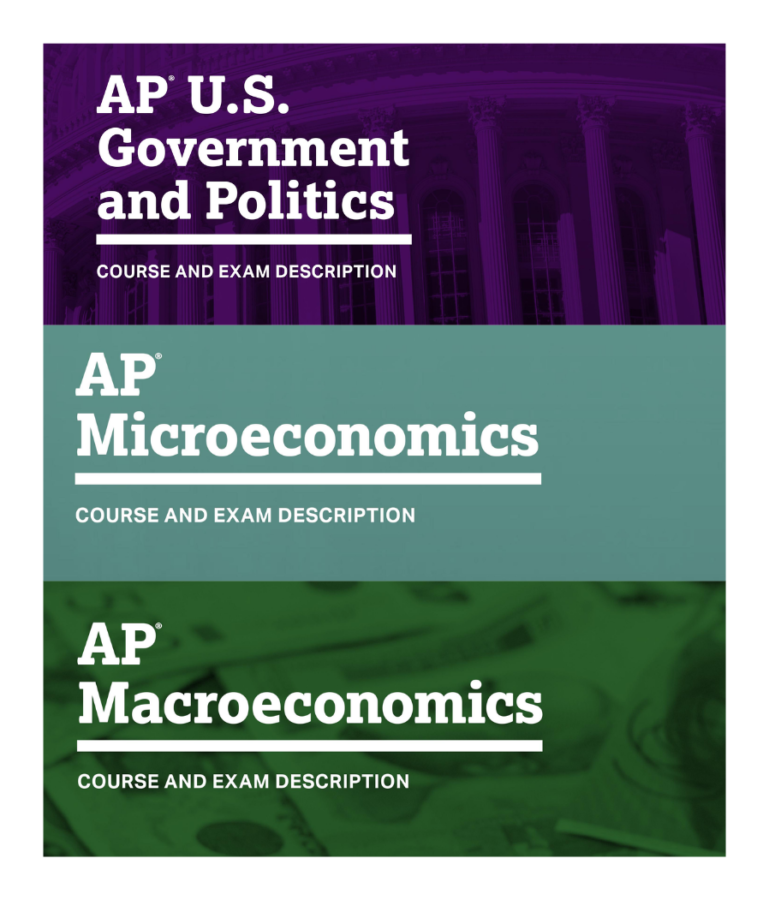Currently, Woodside has a single-track system for Economics/Government, a class available only to seniors, rather than Advanced Placement (AP) Econ/Gov options. For the 2023-2024 school year and for future years, Woodside should establish an AP Econ/Gov class as an option for seniors.
Woodside High School currently offers 19 of the 38 APs that the CollegeBoard has created. Advanced Placement and advanced standing classes, in general, tend to involve faster pacing, more content, and more rigor, which in turn allows for students who seek more of a challenge or who are simply very interested to gain a more advanced education. By adding an additional AP, AP Econ/Gov, the school would allow for students who are intrigued by economics and the US government to get two more rigorous courses, courses that would push them more, and in doing so, provide more learning and growth.
Including AP Econ/Gov would also allow seniors to appear more attractive for college applications. Students taking AP classes gain a considerable weighted GPA boost, not to mention that taking harder, more rigorous classes demonstrates to universities that the student is not afraid to push themselves and that the student can succeed despite difficulty.
AP classes also offer students the opportunity to take AP exams later on in the year, on which they will get a score from 1-5. Many universities will give college credit to students who pass the exams or who get high scores. The University of California will give college credit to students who score 3s or higher on their AP exams, with scores of 5s allowing students to be exempted from having to take a specific class, like a language course. By testing out of certain college courses because of high AP scores, students can save money, as they won’t have to pay for extra classes.
Because of the increased rigor and challenge of AP courses, students taking them will also gain the benefit of being more prepared for college, should they attend, as many of the courses in college will be more difficult than those in high school. AP students will have already experienced difficult classes and learned how to tackle them, a skill which will aid them should they attend university.
One potential downside of Advanced Placement classes is that the AP exams cost money and hence discriminate against students who might not be able to afford an extra expenditure like an AP exam. However, at Woodside High School, the school offers to pay the exam fee for low-income students, so they can still take advantage of the exam.
Another possible con of creating an Advanced Placement Econ/Gov class is the worry over creating a more divisioned, separated student body, dividing those who take more advanced classes and those who take fewer. In recent years, however, the school has done much to combat this separation, with, for example, the freshmen taking four of their six or seven classes as one grade in a one-track system – Ethnic Studies, P.E., English 1, and Biology (Biology will be the only science course available for the 2023-2024 school year). This detracking, such as with English 1, aims to make a student body that can build community better and have more confidence to take harder classes, like AS English 2 in their future years, according to Instructional Vice Principal Cara Klackle.
“With only one English course for freshmen, we hope that more students will feel confident and prepared for pathways to college prep, AS English II, and our two AP English courses,” Klackle said.
Since in recent years there has been a push to make students more ready to take AP classes, the school should institute AP Econ/Gov. With a student body that feels more confident should come classes that are harder, like AP Econ/Gov, so students can push themselves and obtain higher levels of learning, among other benefits.
Past efforts to institute AP Econ/Gov, such as those in past years by former students Connor Spackman, Daniel Longo, and Robert Sellman, should be re-energized. Ultimately, initiating an AP Econ/Gov class would aid in the schools ability to give higher levels of education to students, along with other benefits such as college preparation, college credit, GPA boosts.












